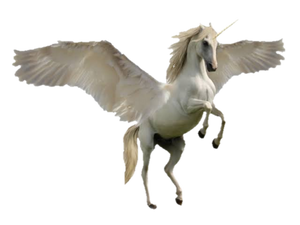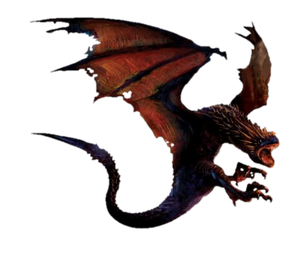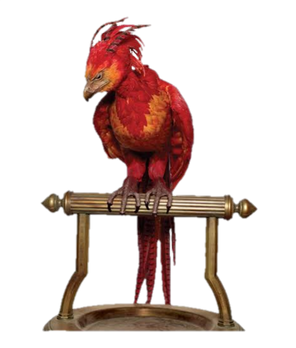WELCOME TO
POTTERNORE'S LIBRARY!
Black Walnut Wood
Less common than the standard walnut wand, that of black walnut seeks a master of good instincts and powerful insight. Black walnut is a very handsome wood, but not the easiest to master. It has one pronounced quirk, which is that it is abnormally attuned to inner conflict, and loses power dramatically if its possessor practises any form of self-deception.
If the witch or wizard is unable or unwilling to be honest with themselves or others, the wand often fails to perform adequately and must be matched with a new owner if it is to regain its former prowess. Paired with a sincere, self-aware owner, however, it becomes one of the most loyal and impressive wands of all, with a particular flair in all kinds of charmwork.
Apple Wood
Applewood wands are not made in great numbers. They are powerful and best suited to an owner of high aims and ideals, as this wood mixes poorly with Dark magic.
It is said that the possessor of an apple wand will be well-loved and long-lived, and I have often noticed that customers of great personal charm find their perfect match in an applewood wand.
An unusual ability to converse with other magical beings in their native tongues is often found among apple wand owners.
Redwood Wood
Wand-quality redwood is in short supply, yet constant demand, due to its reputation for bringing good fortune to its owner.
As is usually the case with wandlore, the general populace have the truth back to front: redwood wands are not themselves lucky, but are strongly attracted to witches and wizards who already possess the admirable ability to fall on their feet, to make the right choice, to snatch advantage from catastrophe.
The combination of such a witch or wizard with a redwood wand is always intriguing.
English Oak Wood
A wand for good times and bad, this is a friend as loyal as the wizard who deserves it.
Wands of English oak demand partners of strength, courage and fidelity. Less well-known is the propensity for owners of English oak wands to have powerful intuition, and, often, an affinity with the magic of the natural world, with the creatures and plants that are necessary to wizardkind for both magic and pleasure.
Pear Wood
This golden-toned wood produces wands of splendid magical powers, which give of their best in the hands of the warm-hearted, the generous and the wise.
Possessors of pear wands are, in my experience, usually popular and well-respected. I do not know of a single instance where a pear wand has been discovered in the possession of a Dark witch or wizard.
Pear wands are among the most resilient, and I have often observed that they may still present a remarkable appearance of newness, even after many years of hard use.
Chestnut Wood
This is a most curious, multi-faceted wood, which varies greatly in its character depending on the wand core, and takes a great deal of colour from the personality that possesses it.
The wand of chestnut is attracted to witches and wizards who are skilled tamers of magical beasts, those who possess great gifts in Herbology, and those who are natural fliers. However, when paired with dragon heartstring, it may find its best match among those who are overfond of luxury and material things, and less scrupulous than they should be about how they are obtained.
Conversely, three successive heads of the Wizengamot have possessed chestnut and unicorn wands, for this combination shows a predilection for those concerned with all manner of justice.
Vine Wood
The druids considered anything with a woody stem as a tree, and vine makes wands of such a special nature that I have been happy to continue their ancient tradition.
Vine wands are among the less common types, and I have been intrigued to notice that their owners are nearly always those witches or wizards who seek a greater purpose, who have a vision beyond the ordinary and who frequently astound those who think they know them best.
Vine wands seem strongly attracted by personalities with hidden depths, and I have found them more sensitive than any other when it comes to instantly detecting a prospective match. Reliable sources claim that these wands can emit magical effects upon the mere entrance into their room of a suitable owner.
Yew Wood
Yew wands are among the rarer kinds, and their ideal matches are likewise unusual, and occasionally notorious. The wand of yew is reputed to endow its possessor with the power of life and death, which might, of course, be said of all wands; and yet yew retains a particularly dark and fearsome reputation in the spheres of duelling and all curses.
However, it is untrue to say (as those unlearned in wandlore often do) that those who use yew wands are more likely to be attracted to the Dark Arts than another. The witch or wizard best suited to a yew wand might equally prove a fierce protector of others. Wands hewn from these most long-lived trees have been found in the possession of heroes quite as often as of villains.
Where wizards have been buried with wands of yew, the wand generally sprouts into a tree guarding the dead owner’s grave. What is certain, in my experience, is that the yew wand never chooses either a mediocre or a timid owner.
Rowan Wood
Rowan wood has always been much-favoured for wands, because it is reputed to be more protective than any other, and in my experience renders all manner of defensive charms especially strong and difficult to break.
It is commonly stated that no dark witch or wizard ever owned a rowan wand, and I cannot recall a single instance where one of my own rowan wands has gone on to do evil in the world.
Rowan is most happily placed with the clear-headed and the pure-hearted, but this reputation for virtue ought not to fool anyone – these wands are the equal of any, often the better, and frequently out-perform others in duels.
Hawthorn Wood
Hawthorn wands are complex and intriguing in their natures, just like the owners who best suit them. Hawthorn wands may be particularly suited to healing magic, but they are also adept at curses.
Hawthorn is not easy to master, however, i would only ever consider placing a hawthorn wand in the hands of a witch or wizard of proven talent, or the consequences might be dangerous. Hawthorn wands have a notable peculiarity: their spells can, when badly handled, backfire.
Hornbeam Wood
I state that hornbeam selects for its life mate the talented witch or wizard with a single, pure passion, which some might call obsession (though I prefer the term ‘vision’), which will almost always be realised.
Hornbeam wands adapt more quickly than almost any other to their owner’s style of magic, and will become so personalised, so quickly, that other people will find them extremely difficult to use even for the most simple of spells.
Hornbeam wands likewise absorb their owner’s code of honour, whatever that might be, and will refuse to perform acts – whether for good or ill – that do not tally with their master’s principles. A particularly fine-tuned and sentient wand.
Larch Wood
Strong, durable and warm in colour, larch has long been valued as an attractive and powerful wand wood.
Its reputation for instilling courage and confidence in the user has ensured that demand has always outstripped supply. This much sought-after wand is, however, hard to please in the matter of ideal owners, and trickier to handle than many imagine. I find that it always creates wands of hidden talents and unexpected effects, which likewise describes the master who deserves it.
It is often the case that the witch or wizard who belongs to the larch wand may never realise the full extent of their considerable talents until paired with it, but that they will then make an exceptional match.
Ebony Wood
This jet-black wand wood has an impressive appearance and reputation, being highly suited to all manner of combative magic, and to Transfiguration.
Ebony is happiest in the hand of those with the courage to be themselves. Frequently non-conformist, highly individual or comfortable with the status of outsider, ebony wand owners have been found both among the ranks of the Order of the Phoenix and among the Death Eaters.
In my experience the ebony wand’s perfect match is one who will hold fast to his or her beliefs, no matter what the external pressure, and will not be swayed lightly from their purpose.
Alder Wood
Alder is an unyielding wood. Whereas most wand woods seek similarity in the characters of those they will best serve, alder is unusual and seems to desire the opposite.
The ideal owner of this wand is someone whos helpful, considerate, and most likeable.
When an alder wand is happily placed, it becomes a magnificent, loyal helpmate. Of all wand types, alder is best suited to non-verbal spell work, whence comes its reputation for being suitable only for the most advanced witches and wizards.
Hazel Wood
Wand that made from hazel wood is a sensitive wand. It often reflects its owner's emotional state.
The ideal owner of this wand is someone who understands and can manage their own feelings.
This wand is capable of outstanding magic in the hands of the skillful, and is so devoted to its owner. Hazel wands also have the unique ability to detect water underground, and will emit silvery, tear-shaped puffs of smoke if passing over concealed springs and wells.
Others should be very careful handling a hazel wand if its owner has recently lost their temper, or suffered a serious disappointment, because the wand will absorb such energy and discharge it unpredictably.
Pine Wood
Wand with a pine wood is one of those that is most sensitive to non-verbal magic.
The straight-grained pine wand always chooses an independent, individual master who may be perceived as a loner, intriguing, and perhaps mysterious. Also they choose owner who are destined for long lives.
Pine wands enjoy being used creatively, and unlike some others, will adapt unprotestingly to new methods and spells.
Spruce Wood
Spruce wood is a difficult wood to be made as wand. It is quiet true that it requires particular deftness to work with spruce, which produces wands that are ill-matched with cautious or nervouse natures, and become positively dangerous in fumbling finger
The spruce wand requires a firm hand, because it often appears to have its own ideas about what magic it ought to be called upon a produce. The ideal owner is mostly a bold spell-caster with a good sense of humour.
However, when a spruce wand meets its match. It becomes a superb helper, intensely loyal to their owners and capable of producing particularly flamboyant and dramatic effects.
Sycamore Wood
The sycamore makes a questing wand, eager for new experiences and losing brilliance if enganged in mundane activities. This wand might combust if its allowed to become 'bored'.
The sycamore's ideal owner is curious, vital, and adventurous.
When paired with such an owner, it demonstrates a capacity to learn and adapt that earns it a rightful place among the world's most highly-prized wand woods.
Maple Wood
This is a beautiful and desirable wood, and wand quality maple has been among the most costly for centuries. they are not stay-at-home wands, and prefer ambition in their witch or wizard, otherwise their magic grows heavy and lacklustre.
I have often found that those chosen by maple wands are by nature travellers and explorers.
Fresh challenges and regular changes of scene cause this wand to literally shine, burnishing itself as it grows, with its partner, in ability and status. Possession of a maple wand has long been a mark of status, because of its reputation as the wand of high achievers.
Unicorn Hair

Unicorn hair generally produces the most consistent magic, and is least subject to fluctuations and blockages. Wands with unicorn cores are generally the most difficult to turn to the Dark Arts. They are the most faithful of all wands, and usually remain strongly attached to their first owner, irrespective of whether he or she was an accomplished witch or wizard.
Minor disadvantages of unicorn hair are that they do not make the most powerful wands (although the wand wood may compensate) and that they are prone to melancholy if seriously mishandled, meaning that the hair may ‘die’ and need replacing.
Dragon Heartstring

As a rule, dragon heartstrings produce wands with the most power, and which are capable of the most flamboyant spells. Dragon wands tend to learn more quickly than other types. While they can change allegiance if won from their original master, they always bond strongly with the current owner.
The dragon wand tends to be easiest to turn to the Dark Arts, though it will not incline that way of its own accord. It is also the most prone of the three cores to accidents, being somewhat temperamental
Phoenix Feather

This is the rarest core type. Phoenix feathers are capable of the greatest range of magic, though they may take longer than either unicorn or dragon cores to reveal this. They show the most initiative, sometimes acting of their own accord, a quality that many witches and wizards dislike.
Phoenix feather wands are always the pickiest when it comes to potential owners, for the creature from which they are taken is one of the most independent and detached in the world. These wands are the hardest to tame and to personalise, and their allegiance is usually hard won.
Wands Length & Flexibility
Wands have different cores, woods, lengths and flexibilities. These factors, along with the owner's life experience and magical ability, combine to define a wand's character. As a result, no two wands are exactly alike.
Wand flexibility or rigidity denotes the degree of adaptability and willingness to change possessed by the wand-and-owner pair. Possible flexibilities include